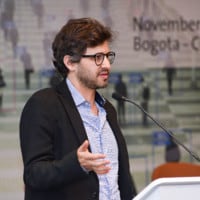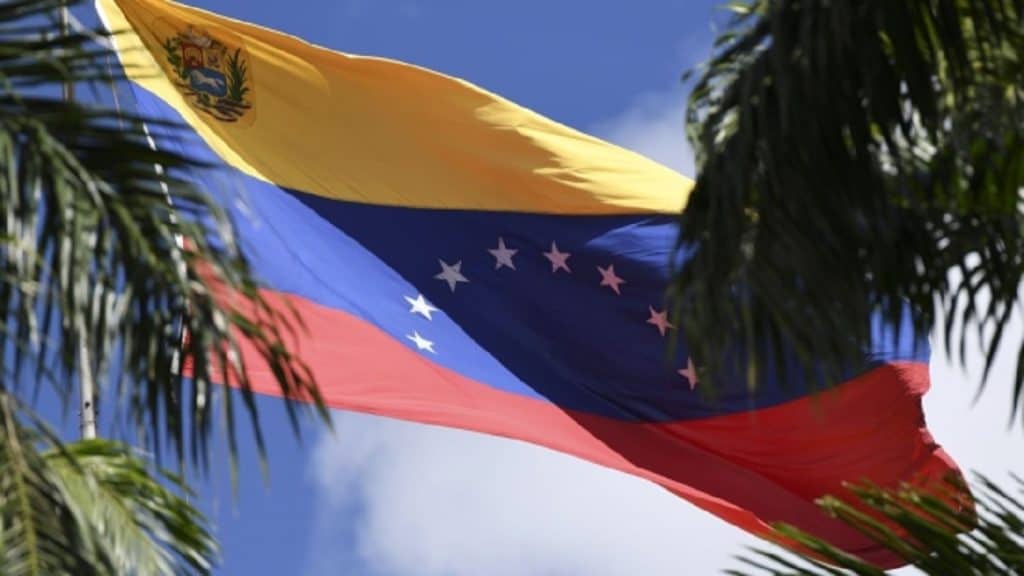By Mauricio Jaramillo Jassir
The legislative elections in December 2020 in Venezuela will be final and perhaps the most relevant electoral process in recent years.

After several elections without the participation of the opposition and lacking any representative international recognition, it can be concluded that the isolation, sanctions and boycott of the electoral processes promoted by the Venezuelan ruling party have not yielded any results.
Far from weakening Nicolás Maduro in power since the death of Hugo Chávez in 2013, the policy of sanctions and isolation has provided the perfect justification for the regime to increase controls over the population and to assign responsibility for the dramatic crisis – which every day worsens- the sanctions imposed by the United States, the European Union and even some of its neighbors congregated in the so-called Lima Group, created in 2016 to put pressure on Maduro, without having achieved any significant objective so far.
Currently, the country faces three parallel crises, the mutual effects of which are aggravating them. It is first of all a dramatic drop in oil production, which was intended to be the main support for the entire social policy and redistribution of the Bolivarian Revolution with an increasingly socialist accent. In 2011, about 3.5 million barrels were produced per day and it was expected to reach 5 million by 2014 and 6 million in 2019, something that never materialized. In 2018, after several years of wear and tear in the oil industry, production was below 1.5 million and OPEC estimates that in 2020 it will not even reach 400 thousand barrels, a record low that heralds a currency crisis severe and the systematic weakening of the main source of income. Secondly, the country is going through a marked shortage of foreign exchange, which prevents the acquisition of basic necessities and, in particular, makes it difficult to import food, an issue that is increasingly sensitive as the reduction in calorie consumption fell from 1,200 daily to 500 and it is thought that 4 million people could suffer from hunger. And, thirdly, the political crisis appears as less pressing, but of greater relevance, as a product of Maduro’s lack of legitimacy, the annihilation of all channels of officialism-opposition dialogue and, as if that were not enough, the imminent possibility of for the country to move towards a new constitution in the course of 2021. The latter would make any transition more difficult in the short and medium term.
Although the economic issue is the most dramatic and the least solvable in the short term, therefore, it is more feasible to think of a solution for the political paralysis and then to focus on the stabilization of the economic regime. Only when a minimum level of consensus is reached between the main political forces, that is, the ruling party, the opposition and some former Chavistas who begin to form a representative force, can an economic recovery be conceived that will surely take several years.
Based on this premise, it is understood that legislative elections can become the main scenario that allows a transition to democracy in the immediate future and serve at least three urgent objectives. In the first place, that as the transition minimums are agreed upon, the sanctions that generate a humanitarian drama without precedent in the hemisphere will begin to be lifted. Second, that, without further delay, an electoral calendar for presidential elections with international observation begins to be projected. This implies understanding the enormous limitations of the Organization of American States (OAS) whose authority was seriously questioned as a result of its role in the elections in Bolivia in 2019. Its legitimacy has not only been affected by the position of its Secretary General Luis Almagro, aligned with the unilateral positions of Washington, but the eagerness of the hemispheric organization to accuse the Bolivian government of fraud was evident when there was no conclusive evidence in that regard.
Reports from think tanks such as the Center for Economic and Policy Research (CEPR) or the MIT Laboratory of Electoral Sciences or Data have exposed the lack of rigor of the reports on which the OAS relied to suggest the repetition of elections and leave the doubt of fraud in the environment. In an atmosphere of polarization on the Venezuelan scene and with the urgent need for elections to comply with all transparency requirements, it would be unthinkable to leave such a task in the hands of the OAS. Probably if sanity had prevailed and Almagro had been replaced by other figures such as María Fernanda Espinoza or Hugo de Zela, it would be feasible to think about his observation. However, the re-election of Almagro meant the categorical closure of any influence of the OAS in a scheme of dialogue or political transition in Venezuela. Confirming the Uruguayan for a new period confirmed the vocation within the OAS that the only way to achieve change in Venezuela is through a coup against Maduro.
Second, these elections could mean the return of the opposition to a citizen mandate from which they have greater room for maneuver to negotiate with the ruling party. The historical lesson of this Venezuela is clear: as time passes, the opposition gives way and loses space while the ruling party consolidates in power despite the devastating crisis. And, thirdly, this legislative election corresponds to the electoral calendar according to the constitutional order recognized by the opposition. Unlike the last presidential election and those to elect members of the National Constituent Assembly, clearly inscribed in the overwhelming logic of the government, this election honors the electoral logic and the alternation provided for in the 1999 Constitution that today all the opposition defends.
Venezuela appears intermittently on the regional agenda, despite constituting the most serious humanitarian crisis in recent times in the area. To reach a long-term solution, one must understand the importance of rescuing the dialogue and understand once and for all the futility of sanctions that only delay the urgent process of economic recovery.
Author: Mauricio Jaramillo Jassir (Professor and researcher at Universidad del Rosario, Bogotá, Bogotá D.C. Department, Colombia).
(The opinions expressed in this article are solely those of the authors and do not necessarily reflect the views of World Geostrategic Insights)
Image Credit: Bloomberg







